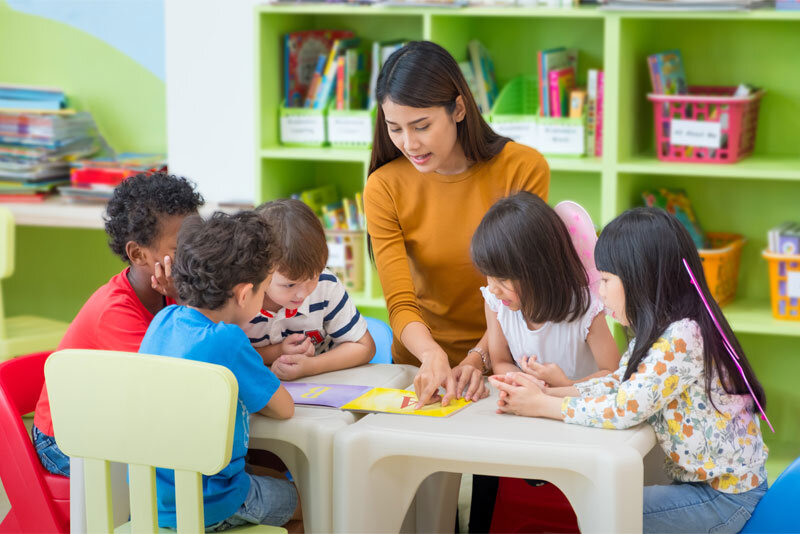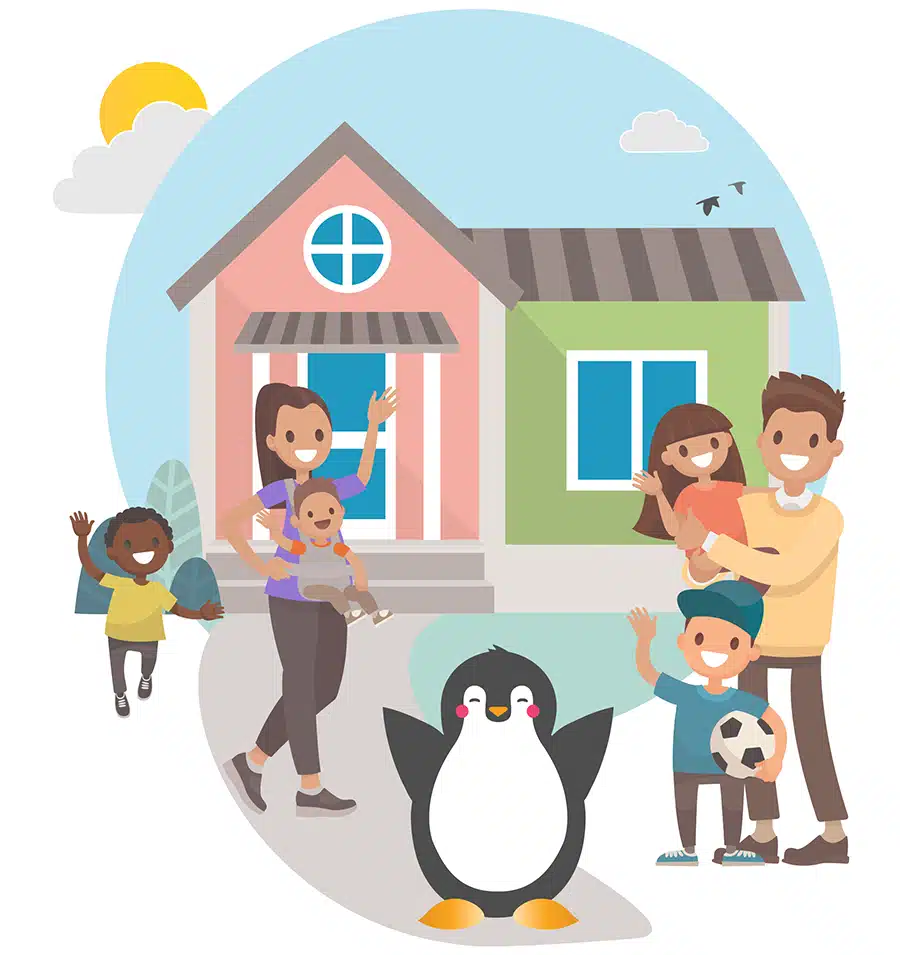The Importance Of Trained Staff In Childcare North York Programs
Wiki Article
The Function of DAYCARE in Fostering Social Skills and Early Learning
Day care offers as a considerable environment for little ones, helping with essential social communications that promote very early learning. In this structured setting, youngsters engage with peers and caregivers, developing necessary communication and teamwork skills. As they browse play and numerous tasks, they discover to solve problems and construct psychological intelligence. Comprehending the subtleties of these interactions discloses the extensive influence daycare has on a kid's advancement, shaping their future connections and academic readiness. What certain skills do kids obtain in this setup?The Importance of Social Interaction in Childcare
While lots of moms and dads identify the importance of very early childhood education, the duty of social interaction in childcare is often underestimated. Childcare settings give children with very useful chances to engage with peers, promoting important social abilities. During these formative years, youngsters discover to navigate different social dynamics, such as sharing, teamwork, and conflict resolution. Communicating with diverse age and characters enhances their capacity to adapt to different environments and develop compassion in the direction of others.
Building Interaction Abilities Via Play
Play serves as a powerful tool for kids to construct essential communication skills in childcare settings. Through various play tasks, children involve in discussions, share their ideas, and discover to pay attention to others. Role-playing video games, for example, encourage them to make use of language in various contexts, advertising vocabulary development and understanding of social hints.
Additionally, narration during play allows youngsters to convey concepts and feelings, aiding them create narrative abilities and self-confidence in their spoken expressions. Generally, play not only works as an enjoyable activity however additionally as a vital platform for developing the communication skills necessary for successful social communications in later life.
Encouraging Collaboration and Teamwork
Cooperation and synergy are necessary abilities that children can grow in childcare atmospheres. With different team tasks, such as constructing tasks or joint games, youngsters find out to share duties and pursue usual objectives. These communications promote an understanding of the value of paying attention to others, discussing duties, and jeopardizing when needed.In day care settings, caregivers frequently create opportunities for children to take part in synergy by urging them to join team jobs. This not only helps children create social bonds yet likewise cultivates a feeling of belonging and area.
As they navigate these cooperative experiences, youngsters get useful insights right into the characteristics of collaborating with peers. They learn to value diverse perspectives and identify that each participant adds distinctively to the group initiative. Eventually, these early lessons together and synergy lay the groundwork for healthier partnerships and efficient collaboration in future social and scholastic settings.
Structured Understanding Activities and Cognitive Advancement
Structured knowing tasks play an essential function in fostering cognitive advancement in young kids (Child Care Near Me). These tasks, that include problems, narration, and hands-on experiments, stimulate important thinking and analytical abilities. In a childcare setting, structured discovering urges children to engage with their peers, boosting their capacity to process information and comprehend various principles
With assisted play and interactive jobs, youngsters establish fundamental skills such as numeracy and proficiency. For example, tasks focused around numbers can aid kids comprehend mathematical ideas, while storytelling boosts language purchase and understanding. Furthermore, structured discovering allows educators to examine developing progress and tailor tasks to private knowing requirements.

Incorporating a varied variety of organized tasks not only promotes cognitive growth but also prepares youngsters for future academic success. By supplying a well balanced setting that cultivates exploration and inquiry, childcare programs play a necessary role in forming the cognitive abilities of Click Here young learners.
Cultivating Psychological Intelligence and Confidence
Emotional knowledge and self-confidence are necessary elements of a youngster's advancement, complementing the cognitive abilities fostered with structured understanding tasks. In day care settings, youngsters are supplied with chances to reveal their feelings and engage in social interactions, which are critical for building emotional awareness. With led play and team activities, youngsters learn to identify their feelings, identify those of others, and create empathy.Communication with caretakers and peers assists to cultivate self-confidence and strength. Favorable support and support from grownups empower children to take threats and face challenges, promoting a feeling of success. As they navigate social characteristics, children construct confidence in their capabilities to connect, collaborate, and deal with problems - Daycare North York. This nurturing environment enables the progressive advancement of emotional intelligence, which is crucial for future social partnerships and general health. Consequently, day care plays a significant role in cultivating both psychological intelligence and confidence in young kids
Frequently Asked Inquiries
Exactly How Can Moms And Dads Pick the Right Childcare for Their Kid?
Parents ought to take into consideration elements such as area, personnel qualifications, security standards, curriculum, and examines from other moms and dads when picking the appropriate daycare for their youngster, ensuring it lines up with their kid's developmental needs and family values.
What Age Is Ideal for Beginning Daycare?

How Does Day care Effect Kid's Actions at Home?
Daycare typically favorably affects children's behavior in the house by boosting social abilities, advertising self-reliance, and motivating psychological guideline (Daycare North York). Because of this, children may show better communication and participation, bring about more unified family members characteristicsExist Any Disadvantages to Day Care Participation?
Yes, there are downsides to daycare attendance, including prospective splitting up stress and anxiety, direct exposure to illnesses, and inconsistent caregiving. These variables can affect a kid's emotional well-being and adjustment at home, influencing general household characteristics.Just How Can Parents Support Social Skills Learned at Childcare?
Moms and dads can sustain social skills learned at day care by assisting in playdates, encouraging cooperative activities, modeling positive communications, reviewing feelings, and strengthening sharing and interaction in your home, therefore improving their child's social advancement and confidence.Daycare offers as a significant environment for young children, promoting important social interactions that promote very early discovering. Day care settings offer youngsters with very useful chances have a peek here to engage with peers, promoting necessary social skills. Play offers as an effective medium for children to construct critical communication abilities in daycare settings. In childcare setups, youngsters are given with possibilities to reveal their feelings and engage in social interactions, which are important for constructing emotional understanding. Daycare frequently positively affects kids's habits at home by improving social skills, advertising self-reliance, and motivating psychological guideline.
Report this wiki page